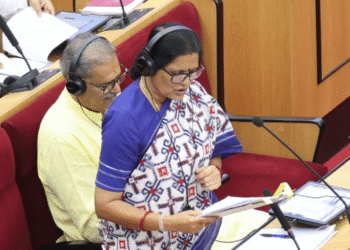Bangladesh’s ousted former Prime Minister Sheikh Hasina has been sentenced to six months in prison by the International Crimes Tribunal (ICT) for contempt of court.
This marks her first conviction since stepping down from office and leaving the country 11 months ago.
The verdict was delivered by ICT-1, led by Justice Md Golam Mortuza Mozumder, and came alongside a two-month sentence for co-accused Shakil Akand Bulbul. The ruling underscores the tribunal’s commitment to enforcing judicial decorum as it prepares for further trials related to the violent crackdown of 2024.
The contempt case stems from comments deemed to have undermined the authority of the tribunal amid broader proceedings involving allegations of mass murder and crimes against humanity. These charges, levelled by state prosecutors just a month ago, relate to Hasina’s alleged involvement in the 2024 crackdown that resulted in the deaths of hundreds.
Legal analysts view this sentencing as both symbolic and precedent-setting, potentially intensifying political tensions in a country already gripped by electoral uncertainty and deep ideological divisions.
Hasina, long a dominant figure in Bangladeshi politics, had maintained a stronghold as head of the Awami League. Her departure from the political scene in 2024 was followed by mounting scrutiny and legal probes, culminating in this week’s conviction.
As the ICT continues its broader investigations, the implications of this ruling could reverberate through Bangladesh’s political and judicial landscape in the coming months.





























